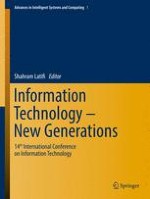2018 | OriginalPaper | Buchkapitel
44. A Practical Approach to Analyze Logical Thinking Development with Computer Aid
verfasst von : Breno Lisi Romano, Adilson Marques da Cunha
Erschienen in: Information Technology - New Generations
Aktivieren Sie unsere intelligente Suche, um passende Fachinhalte oder Patente zu finden.
Wählen Sie Textabschnitte aus um mit Künstlicher Intelligenz passenden Patente zu finden. powered by
Markieren Sie Textabschnitte, um KI-gestützt weitere passende Inhalte zu finden. powered by
